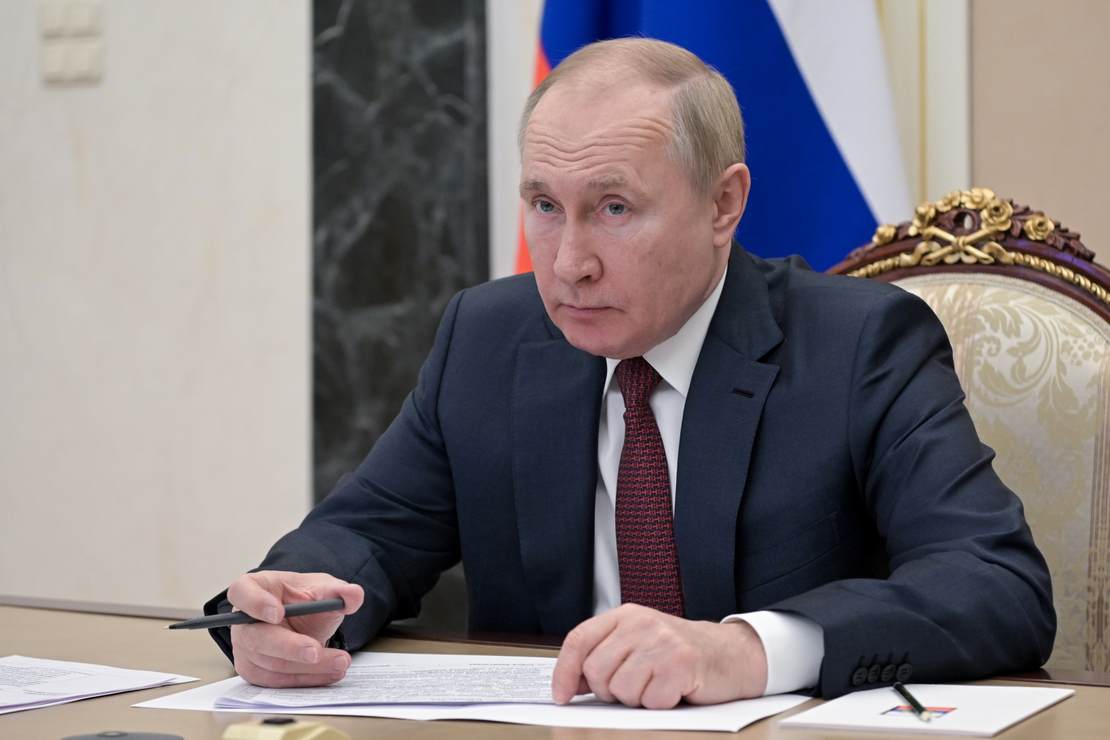
He may have two deadlines, actually, one artificial and the other more … organic.
The artificial deadline is May 9, when Russia celebrates V-E Day with a parade in Moscow. That parade will have extra significance this year since the country is not only at war but at war with, ahem, “Nazis” across the border. A stalemate on May 9, a day when Russia celebrates its military strength, would be hard for Putin to swallow. A retreat or defeat on May 9 would be unthinkable.
So he needs some sort of “victory.” Quickly.
1/ Very worried about the timing here. The increased pro-war, “pro-denazification” rhetoric from Russian state media, urging the Kremlin to “go all the way” in Ukraine, comes as US & NATO officials are publicly saying Russia is regrouping, and may still attempt to go after Kyiv,
— Bianna Golodryga (@biannagolodryga) April 6, 2022
3/ Showcasing a major “victory” or grab is clearly what he wants to do. And with his military facing increased pressure to give him a “win”, I’m afraid we will see some ugly and violent days and weeks ahead. This is the window for the West to REALLY go big in punishment.
— Bianna Golodryga (@biannagolodryga) April 6, 2022
That’s not just speculation from Golodryga. U.S. officials told CNN a few days ago that they have intelligence intercepts suggesting that Putin is “focused” on victory by May 9 for the parade. (“A victory parade with what troops and vehicles?” wondered one European diplomat.) That timetable isn’t just a matter of symbolism either; as the weather warms in Ukraine, the ground will soften and Russian tanks will have more trouble advancing. One former Ukrainian prime minister speculated that Russia’s shift away from Kiev towards the Donbas is designed to give Putin the sort of partial victory he craves as April turns to May. “My take is that this Plan B has a, kind of, deadline,” he said to CNN. “The deadline is the ninth of May.”
Golodryga’s also right that Putin will want to take another shot at Kiev, Odessa, and other prizes that have so far remained beyond his grasp *if* he can gain control of the Donbas. NATO chief Jens Stoltenberg warned this week that Russian forces that have withdrawn to Belarus are being rearmed and resupplied, and Jake Sullivan speculated that “if this offensive in the east proves to gain some traction, Russia could regenerate forces for additional goals, including trying to gain control of yet more territory within Ukraine.” Instead of an unmanageable advance on five axes, Russia will try to simplify by consolidating control in the east and south — and then maybe start pushing north and west.
Which brings us to the other deadline, the “organic” one. Is the Russian army capable of another major advance, or even of conquering the Donbas? At what point will their forces, eroded by Ukrainian attacks and poor morale, be at serious risk of breaking?
No one knows, but it’s all the more reason for Putin to push hard for some sort of success he can call a victory before May 9. It’s an open question how much longer they can go beyond that.
Those troops in any rational system would be rested, re-equipped and allowed time before being sent to another stressful combat situation. That Putin is going to try and do it with these forces reveals these 4 things which show how difficult the long-war scenario is for Russia.
READ RELATED: Pope Francis to Kirill: Ukraine has a right to defend its land, identity against Russian "perverse abuse of power"
— Phillips P. OBrien (@PhillipsPOBrien) April 6, 2022
2) They are willing to basically see the best part of their army wiped out in the first phase of the war. If for some reason they can get these troops back to other parts of Ukraine and they go into combat again, hard to see what would be left of them after a few weeks.
— Phillips P. OBrien (@PhillipsPOBrien) April 6, 2022
4) The Russians are out of ideas. If you are sending troops that have committed some of the worst crimes back into Ukraine, they will only motivate Ukrainian resistance (which has already shown itself to be effective) to even higher levels. Its a stupid idea.
— Phillips P. OBrien (@PhillipsPOBrien) April 6, 2022
One point on which all observers agree is that time is of the essence in getting the Ukrainians the weapons they need for an offensive in the east. There’s a small window here in which Russian forces that withdrew from the north will need to be reconstituted, not yet fit for another major battle in the Donbas. (And maybe not fit at all, per O’Brien.) That’s the moment to arm Ukraine with the tanks and artillery it’s seeking so that it can deploy towards Sloviansk in the central eastern part of the country. Lawrence Freedman, a British professor of war studies, believes that’s where the next major battle will be fought as the Russians try to move south from around Kharkiv and north from Mariupol to surround Ukraine’s forces in the east and cut them off from the rest of the country.
Like O’Brien, Freedman isn’t sure that what’s left of Russia’s army has it in them to conquer the Donbas. And even if they manage it, they may not enjoy their prize:
Putin no doubt wishes to avoid being seen as a loser. It is possible that the ideas developed by the Ukrainian government for it to abandon NATO but rely instead on security guarantees might provide some consolation, but it would not be much. He is left with the worst of both worlds. He is seen as a bully but not a winner, and his battering of the very territories he claimed to care about most has reduced their attraction. Putin is not really a ‘hearts and minds’ man, and now has no hope of incorporating the Donbas into Russia with minimal fuss. For all his talk about historically close bonds, his approach has been brotherly only in the sense of Cain and Abel. Taking over the Donbas now would mean oppressing a hostile population, reconstructing shattered towns and cities, and guarding against future Ukrainian military action.
Freedman also sees the May 9 deadline as significant. Do we really think Putin would deny himself some sort of symbolic victory by that date if the offensive in the Donbas ends up also going badly? If we don’t, we’re left with an uncomfortable question: What might he plausibly do to secure that victory if his army can’t deliver it for him?
I’ll leave you with this remarkable clip of Igor Girkin, a.k.a. “Igor Strelkov,” a notorious figure from Russia’s 2014 campaign in Crimea and the Donbas. A former Russian soldier and FSB agent, Strelkov is an ardent Russian imperialist but he can’t pretend that things are going well in Ukraine. That puts him surprisingly in sync with today’s arresting AP story, “Russia’s failure to take down Kyiv was a defeat for the ages,” which describes how Russian forces in the north were “ill-prepared for Ukrainian resistance, proved incapable of adjusting to setbacks, failed to effectively combine air and land operations, misjudged Ukraine’s ability to defend its skies, and bungled basic military functions like planning and executing the movement of supplies.” Said one retired U.S. officer to the AP, with dry wit, “That’s a really bad combination if you want to conquer a country.”
And yet, “just the roads” maps were quite accurate and the analysts were wrong. Strelkov debunks “contiguous territory” myth and argues that at least in the North Russians controlled only the “long narrow appendixes along the roads”. Russian, indeed, controlled “just the roads” pic.twitter.com/2EqpBVmdXk
— Kamil Galeev (@kamilkazani) April 6, 2022
Source:






